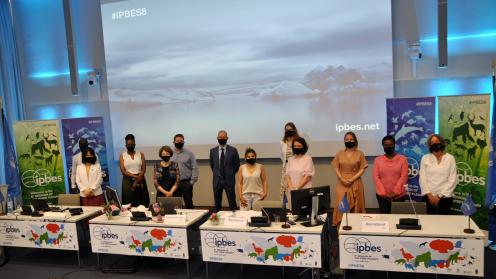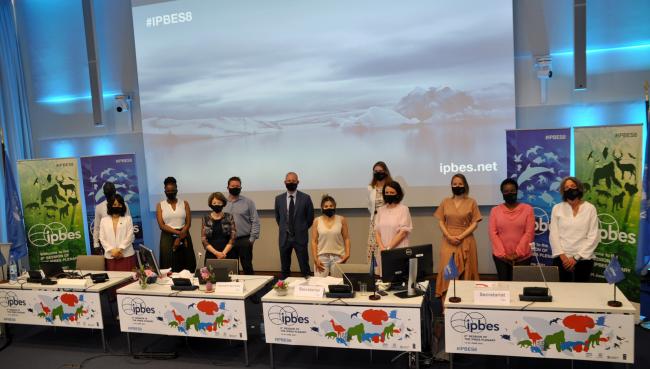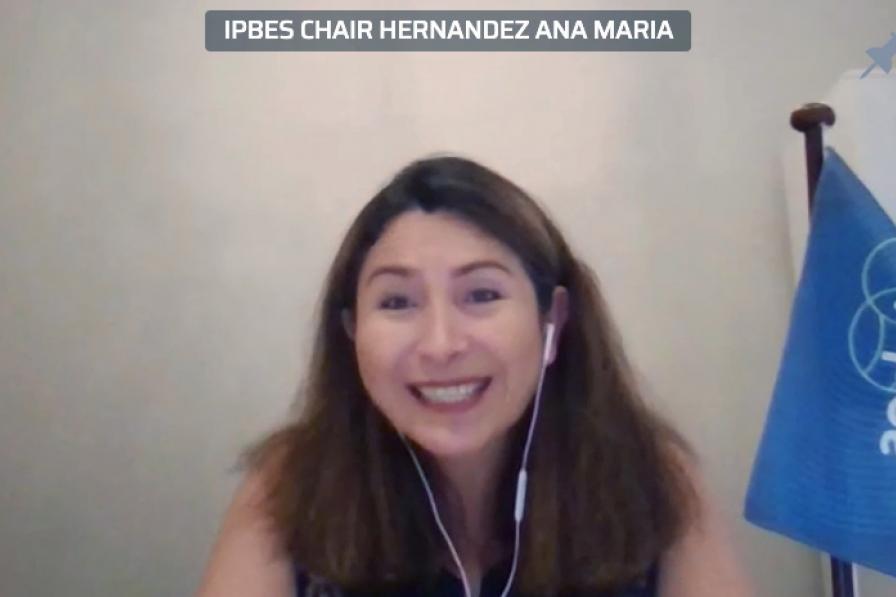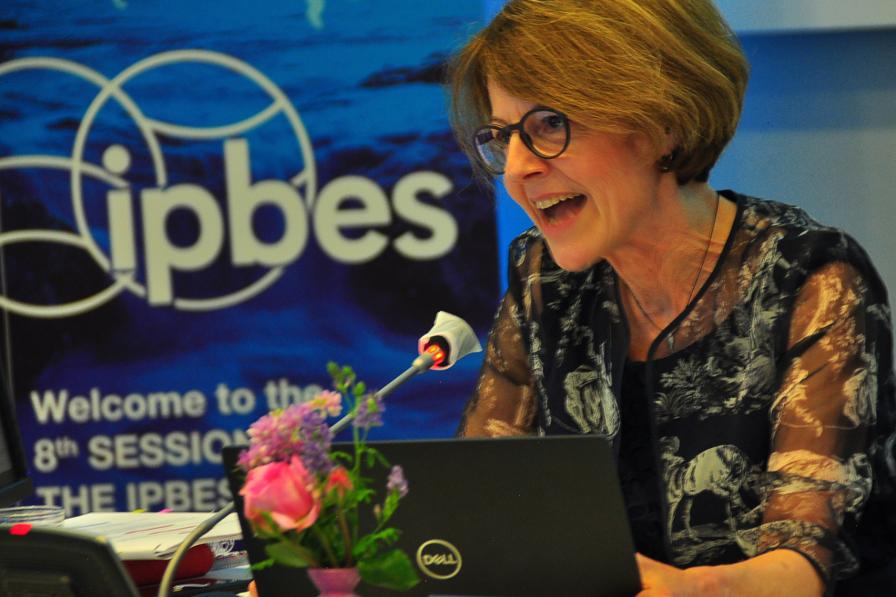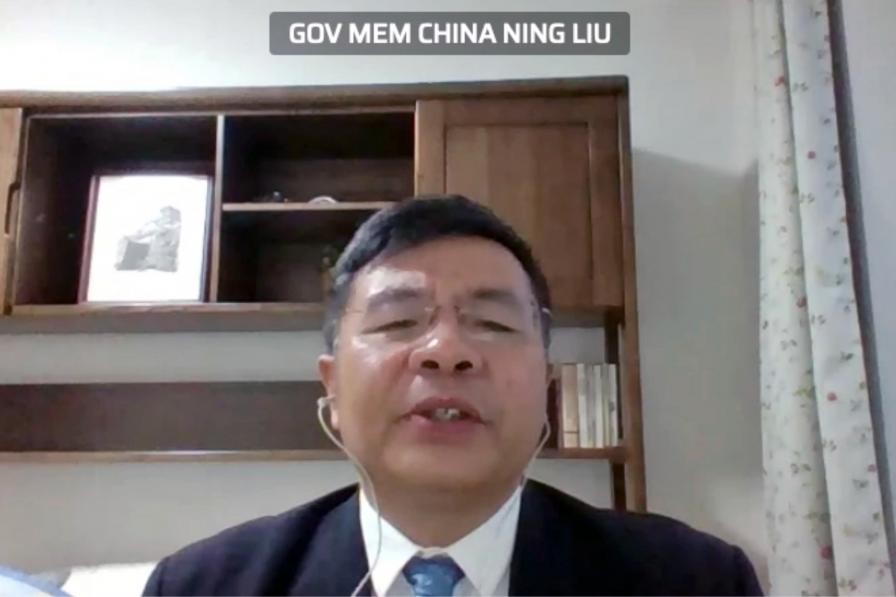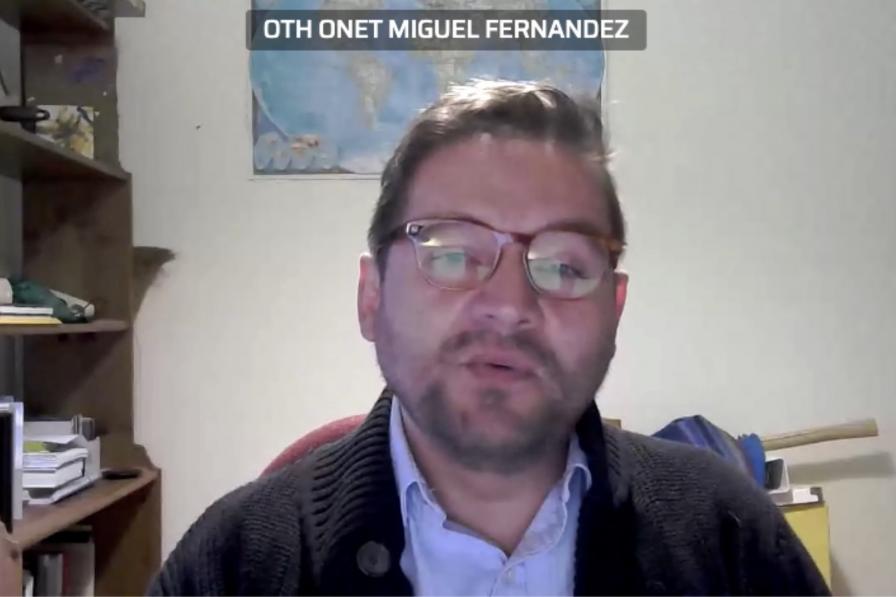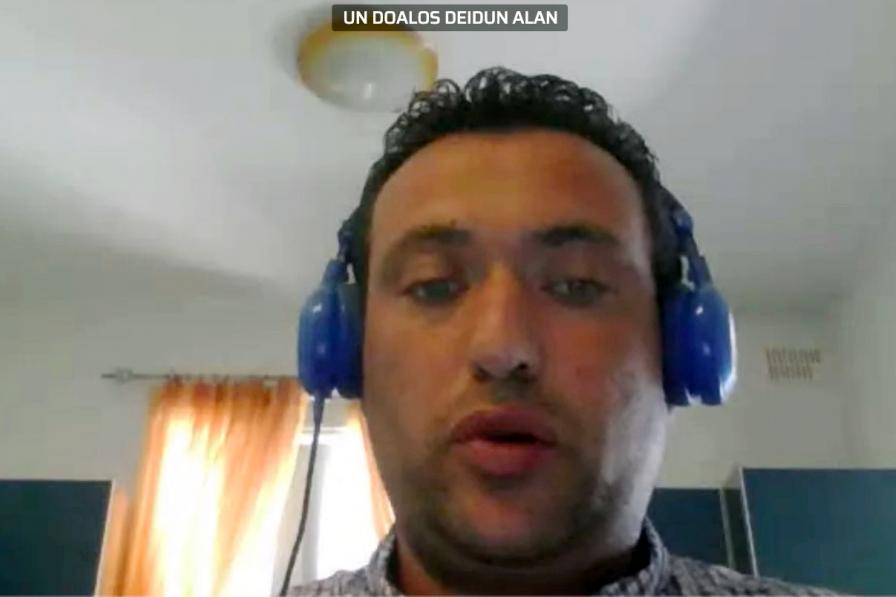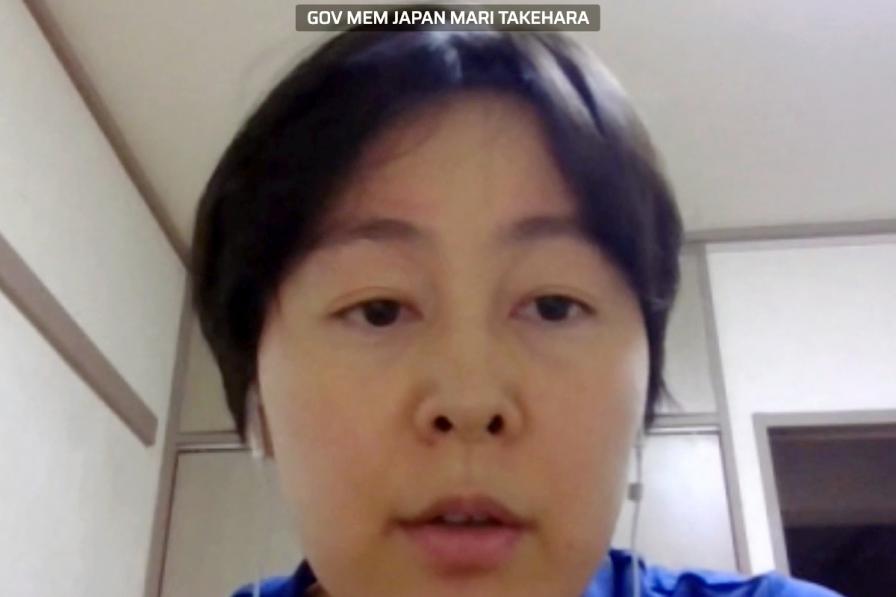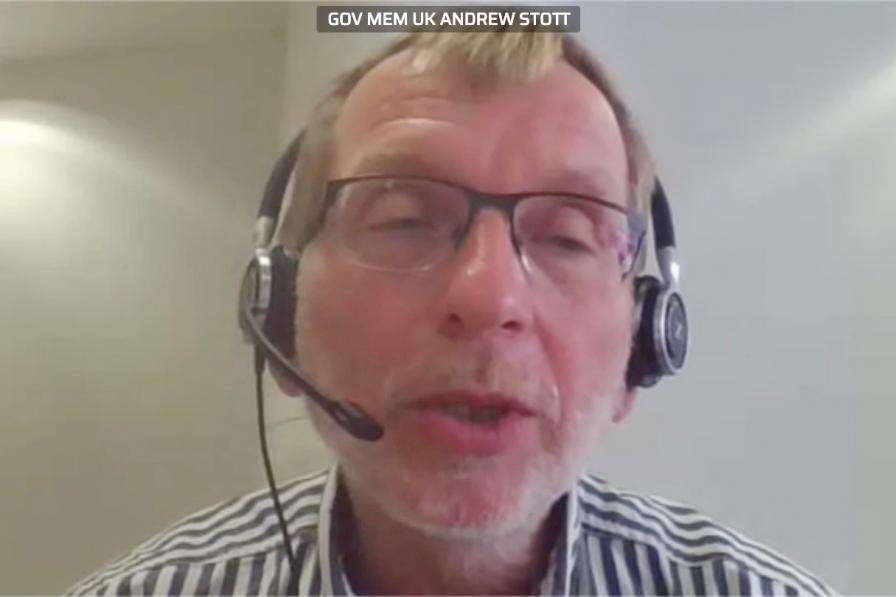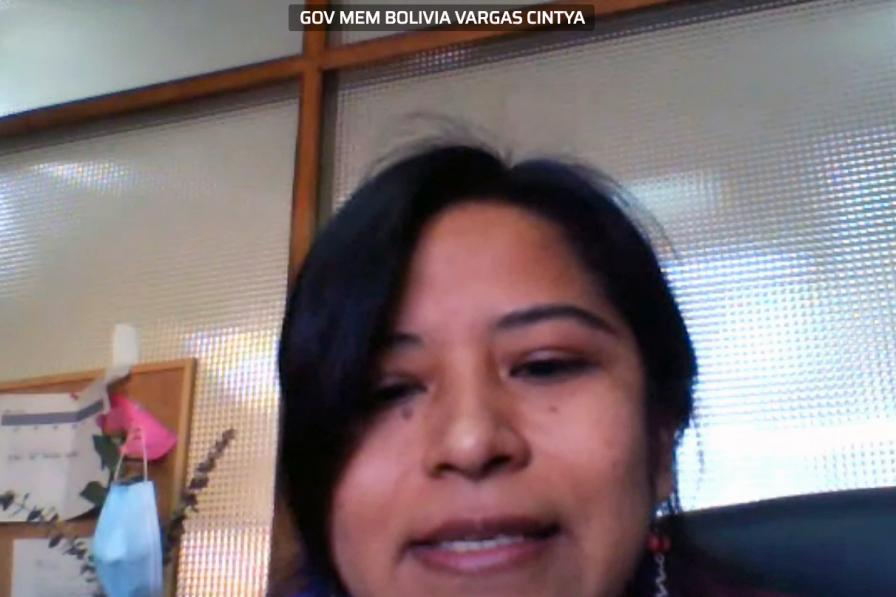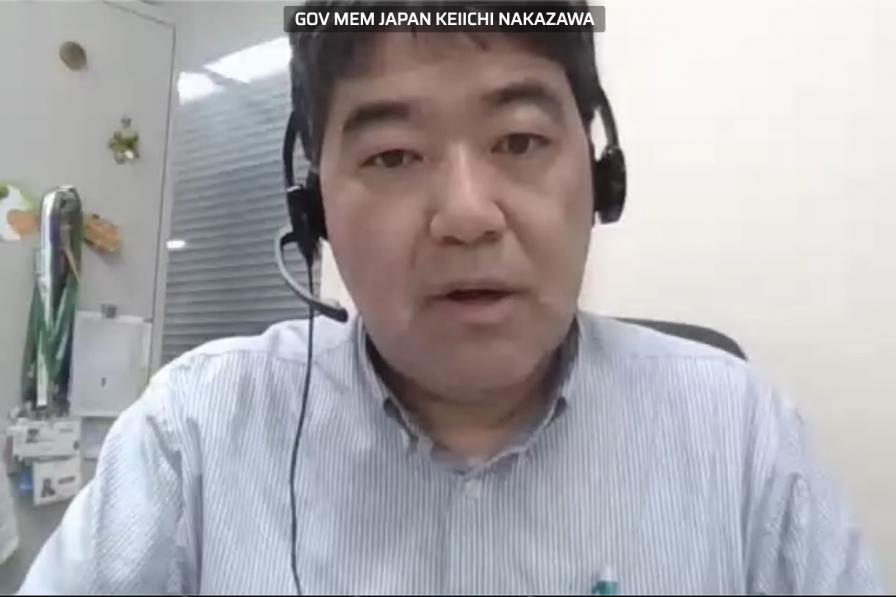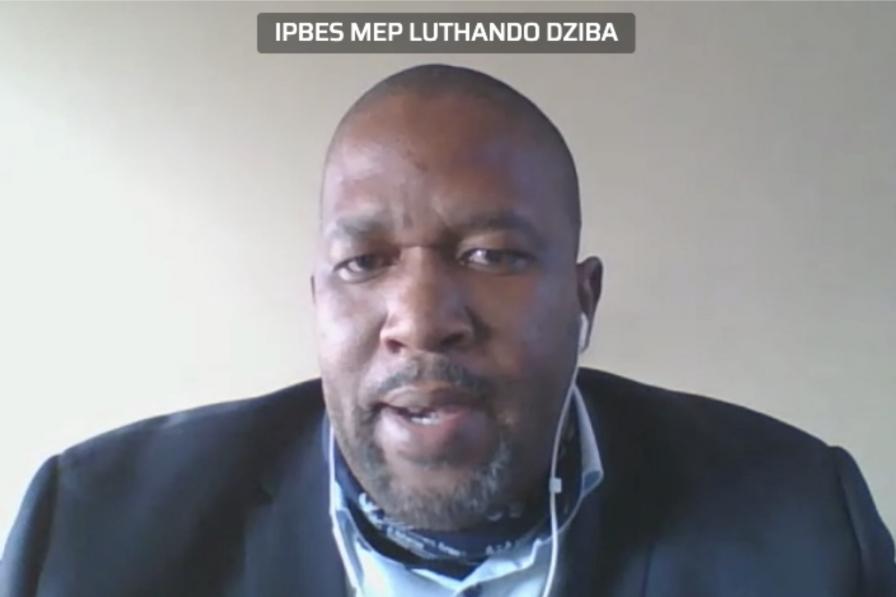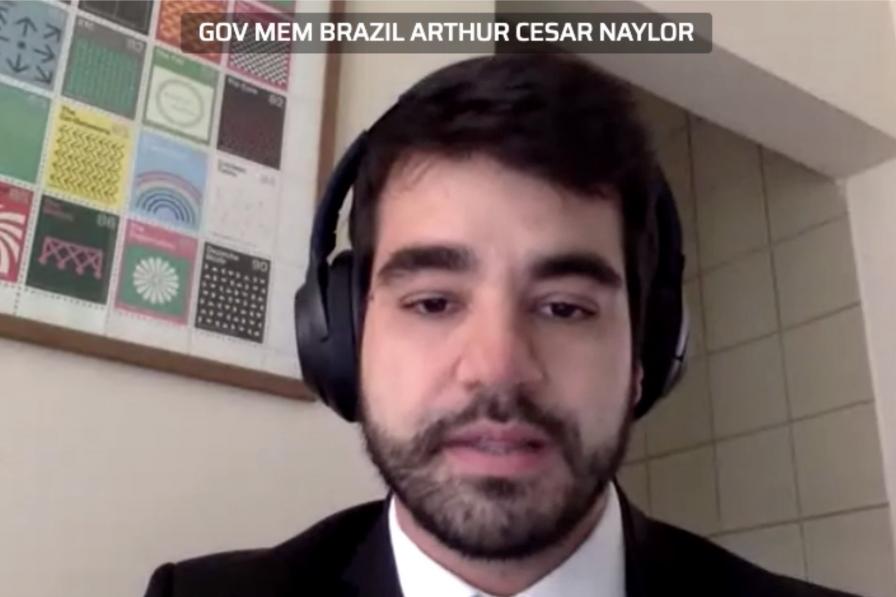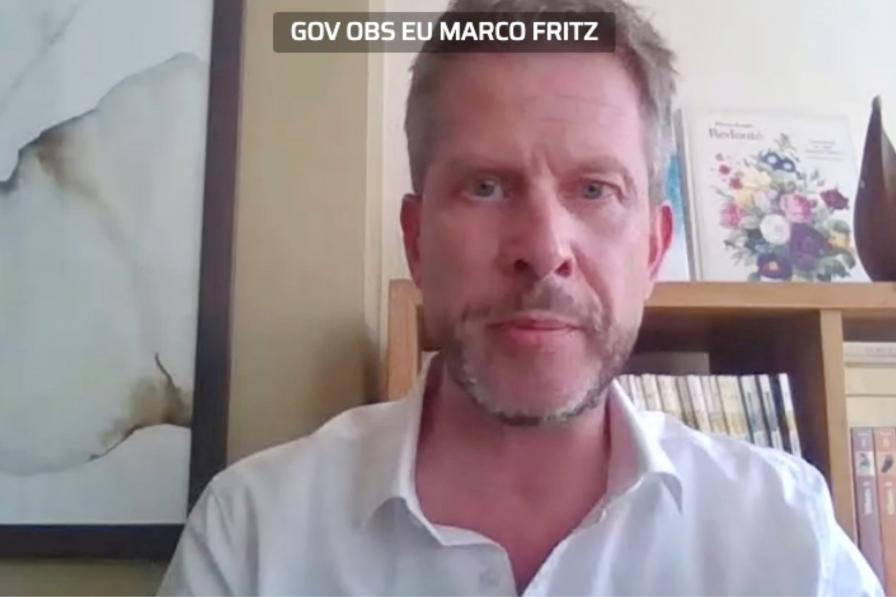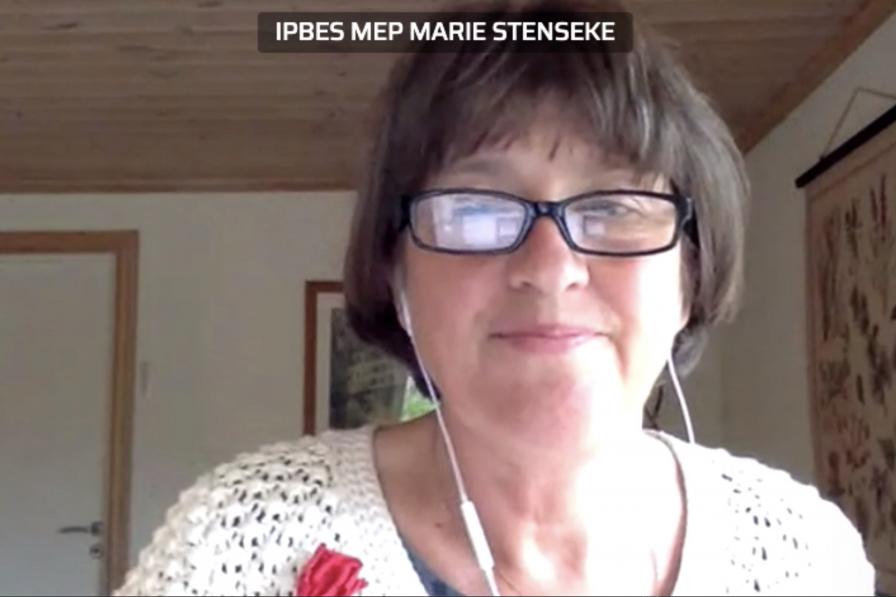The eighth session of the Intergovernmental Platform for Biodiversity and Ecosystem Services (IPBES-8) opened online Monday with 100 governments and almost 900 participants registered and participating.
Highlights of the day included:
- Evidence on the increasing significance of the IPBES assessments, in particular the Global Assessment on Biodiversity and Ecosystem Services, for raising awareness of biodiversity loss and promoting policy changes;
- The discussion on funding needs as IPBES work increases and many assessments are forthcoming; and
- The exchange of ideas on the importance of all forms of knowledge and the inclusion of Indigenous and local knowledge (ILK) holders and practitioners in expert panels.
During the four-hour session, IPBES Members and others:
- listened to opening statements;
- addressed organizational matters;
- listened to the report on progress in the implementation of the rolling work programme;
- discussed financial and budgetary arrangements;
- initiated discussion on the scoping reports on the nexus assessment and the transformative change assessment;
- exchanged opinions on future work on the interlinkages between biodiversity and climate change; and
- discussed ways to improve the effectiveness of the Platform.
Opening statements
IPBES Chair Ana María Hernández Salgar (Colombia) underlined the importance of credibility, transparency, and solid scientific knowledge for a sustainable future.
Anne Juepner, UN Development Programme (UNDP), stressed “we are at a critical point in our joint mission to forge a new relationship between mankind and nature.”
IPBES Executive Secretary Anne Larigauderie provided an overview of the Platform’s recent work, underscoring the significance of the Global Assessment, which was very well received by the media and broad audiences new to biodiversity concerns.
Mexico, for the Latin American and Caribbean Group (GRULAC), reiterated the region’s commitment to fostering the scientific credibility, transparency, and legitimacy of the IPBES process and its deliverables.
China, for ASIA AND PACIFIC, highlighted the report from the first ever collaboration between IPBES and the Intergovernmental Panel on Climate Change (IPCC), stressing its relevance for the IPBES scoping report on the nexus assessment.
Bosnia and Herzegovina, for EASTERN EUROPE, emphasized the importance of cooperation between parties to enable joint action.
South Africa, for AFRICA, asked for regular reviews and updates of the upcoming IPBES’ reports, and stressed the importance of capacity building for addressing gaps and ensuring regional balance in the identification of experts.
Portugal, for the EU, welcomed the reports on the agenda, taking note of outstanding deliverables on the implementation of the work programme for 2030.
The US welcomed the two scoping reports, reaffirmed its commitment to work to ensure both assessments remain policy relevant, and offered to host IPBES-10 in Madison, Wisconsin in 2023.
Elizabeth Maruma Mrema, Executive Secretary of the Convention on Biological Diversity (CBD), emphasized the IPBES work programme, which addresses both the direct and indirect drivers of biodiversity loss, lays the scientific foundation for the post-2020 global biodiversity framework.
The Open-Ended Network of IPBES Stakeholders (ONet) encouraged strengthening multidisciplinary approaches for policy making to curb biodiversity and ecosystem loss, and called for greater research funding.
The Indigenous Forum on Biodiversity and Ecosystem Services (IIFBES) underscored the contribution of Indigenous Peoples and local communities (IPLCs) to the assessment processes, highlighting the connection between knowledge and values, and the strength of holistic approaches.
Assessing Knowledge
IPBES MEP Co-Chair Luthando Dziba presented the scoping reports on the nexus assessment and the assessment on transformative change. He drew attention to the Workshop Report on Biodiversity and Pandemics, and the IPBES-IPCC co-sponsored Workshop Report on Biodiversity and Climate Change, noting video presentations are available on the IPBES website. Deliberations will continue in a working group on Tuesday.
Regarding work related to the interlinkages between biodiversity and climate change and collaboration with the IPCC, Members discussed a draft decision welcoming the report, which would; invite experts of the nexus assessment to make use of it; and invite the Secretariat to explore further possible joint activities.
Many Members welcomed the report and the collaboration with IPCC. Their suggestions included:
- conducting further consultations, including inviting governments to explore pragmatic approaches for future work;
- taking into account transparency, accountability, and government participation in joint efforts as well as the respective rules of procedure;
- reflecting on lessons learned from cooperation so far; and
- establishing robust processes for future collaboration.
Further work
IPBES-8 will continue its work on the two scoping reports Tuesday in a working group. In the same format, Members will further consider the agenda item on capacity building, strengthening knowledge foundations, and supporting policy Thursday.
Deliberations on financial and budgetary arrangements will take place in a contact group, which starts its work Tuesday.
To receive continuing coverage of this event delivered to your inbox, subscribe to the ENB Update newsletter.
